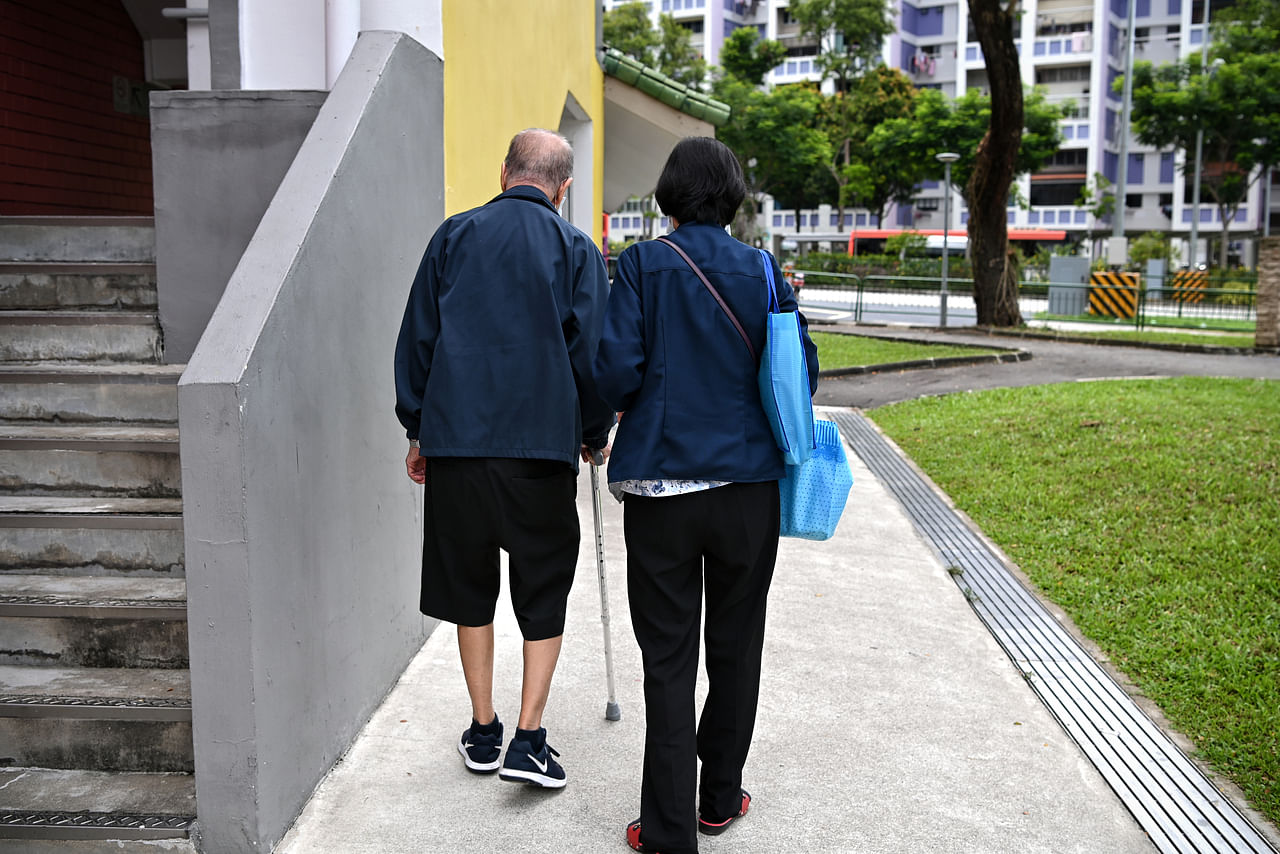More details on work history of domestic workers made available to prospective employers
Sign up now: Get ST's newsletters delivered to your inbox

The measures are among the Government's efforts to safeguard the interests of employers while protecting the well-being of domestic workers.
ST PHOTO: KUA CHEE SIONG
SINGAPORE - The Ministry of Manpower (MOM) has made information about migrant domestic workers and their work history more transparent so employers can make informed decisions when hiring helpers, including those who have had frequent transfers previously.
Employers can access information about a prospective domestic helper's work experience, the types and sizes of households they had worked for, the length of each employment stint and the reasons they stopped working for their previous employers. This includes information about which party initiated the termination of employment.
Speaking in Parliament on Wednesday (Nov 3), Minister of State for Manpower and Education Gan Siow Huang said MOM started collecting data from employers on their reasons for cancelling a domestic worker's work permit from September 2020.
Ms Gan said: "With time, the information in the migrant domestic worker employment history will become more comprehensive. The employer reference channel also allows prospective employers to contact the former employers of the domestic workers they are looking to hire for reference checks.
"MOM will look into how we can raise awareness of these existing measures among employers."
These measures are among the Government's efforts to safeguard the interests of employers while protecting the well-being of domestic workers, and to build a system that is fair to both groups, Ms Gan added.
She also cited other efforts to help Singaporeans with their caregiving needs, including the expansion of long-term care services for those who need them, the launch of assisted living flats with senior-friendly features and integrated care services in February, and the Health Ministry's ongoing review of the Home Caregiving Grant to provide more help to targeted groups, which was first announced in September.
Ms Gan was responding to calls by Ms Tin Pei Ling (Macpherson) and Ms Nadia Samdin (Ang Mo Kio GRC) for greater support for employers facing challenges in hiring domestic workers.
Ms Tin suggested that MOM impose a cap on the number of transfers that can be initiated by a domestic worker in a year. This would encourage them to take the matching process more seriously and would also be fairer to employers, who currently face hiring restrictions if they repeatedly request transfers within a short time, she said.
Ms Gan replied that it is not uncommon for there to be differences in expectations in a working relationship, especially at the initial stage when both parties are still adjusting to the changes.
While most misunderstandings between domestic workers and their employers are resolved amicably, they can also get help from employment agencies and through professional dispute resolution services, she added.
Ms Tin said the ministry should also disallow private, unregulated bartering on social media platforms.
This practice, where employers with urgent needs offer unusually high salaries to entice domestic workers who are already in Singapore to transfer their employment to them, has resulted in rising salary expectations amid a shortage in the supply of such workers, Ms Tin said.
Some families have also suddenly lost their helpers to higher-paying employers and have not been able to hire a replacement, she added.
Ms Nadia also noted the Covid-19 pandemic has resulted in a shortage of domestic workers, while demand has remained steady or gone up.
Despite efforts to expand grant schemes and care services, domestic workers will continue to play a vital caregiving role in Singapore as the nation's population ages, she added.
In response, Ms Gan said Singapore has begun to grant more entry approvals for domestic workers to enter the country as the local and regional virus situations stabilise.
The current supply crunch is expected to improve in the coming months, she said.
"In the longer term, MOM will diversify the countries from which domestic workers are hired," said Ms Gan.
"However, we must recognise that there will continue to be competition for domestic workers, not just locally but also from countries in the region.
"Besides reasonable remuneration to attract domestic workers to work in Singapore, there is also a need to position Singapore as an attractive workplace destination to ensure resilience in our domestic worker supply."


